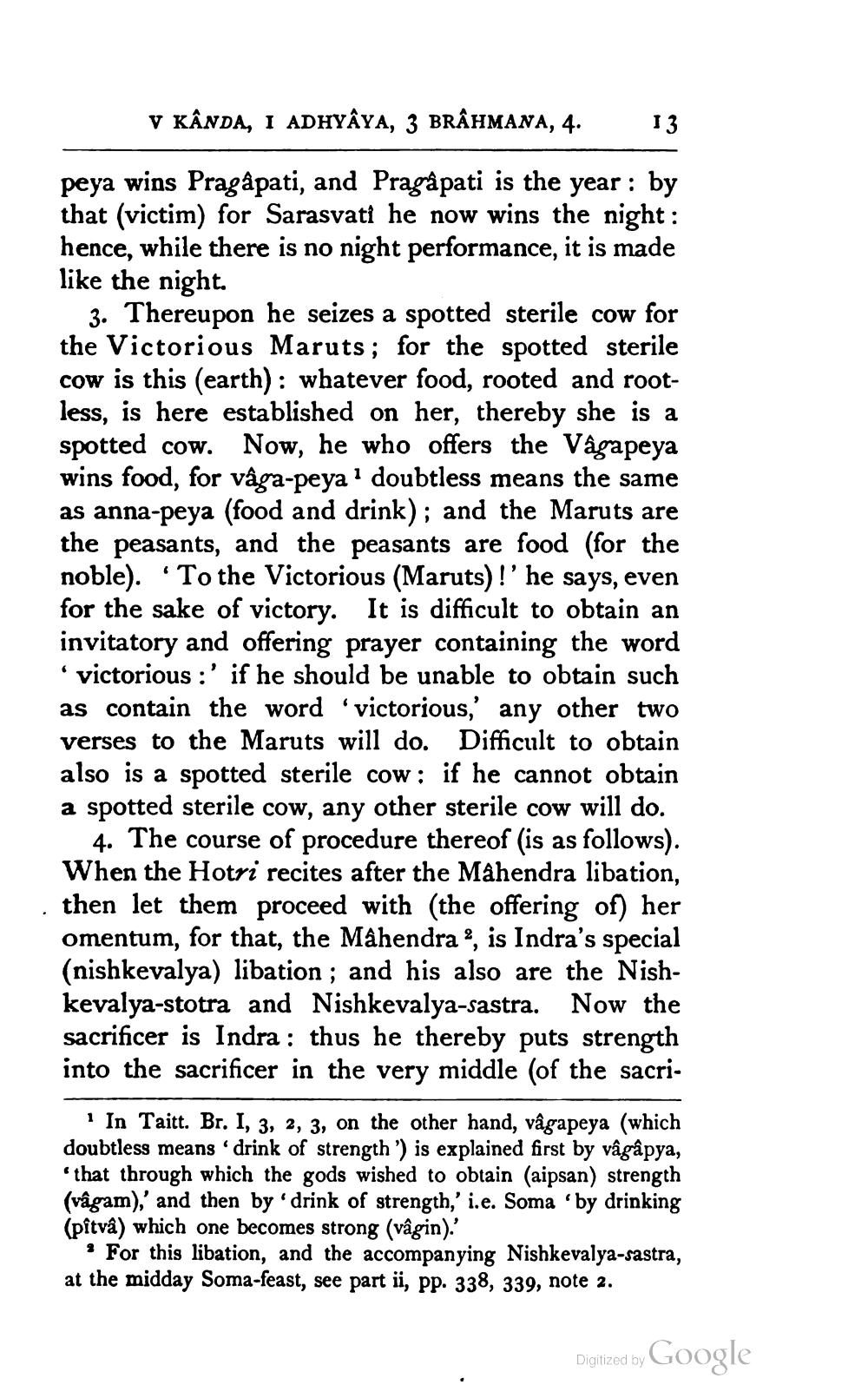________________
V KÂNDA, I ADHYÂYA, 3 BRAHMANA, 4. 13
peya wins Pragâpati, and Pragâpati is the year by that (victim) for Sarasvati he now wins the night: hence, while there is no night performance, it is made like the night.
3. Thereupon he seizes a spotted sterile cow for the Victorious Maruts; for the spotted sterile cow is this (earth): whatever food, rooted and rootless, is here established on her, thereby she is a spotted cow. Now, he who offers the Vâgapeya wins food, for vâga-peya1 doubtless means the same as anna-peya (food and drink); and the Maruts are the peasants, and the peasants are food (for the noble). To the Victorious (Maruts)!' he says, even for the sake of victory. It is difficult to obtain an invitatory and offering prayer containing the word 'victorious:' if he should be unable to obtain such as contain the word 'victorious,' any other two verses to the Maruts will do. Difficult to obtain also is a spotted sterile cow: if he cannot obtain a spotted sterile cow, any other sterile cow will do.
4. The course of procedure thereof (is as follows). When the Hotri recites after the Mâhendra libation, then let them proceed with (the offering of) her omentum, for that, the Mâhendra 2, is Indra's special (nishkevalya) libation; and his also are the Nishkevalya-stotra and Nishkevalya-sastra. Now the sacrificer is Indra: thus he thereby puts strength into the sacrificer in the very middle (of the sacri
In Taitt. Br. I, 3, 2, 3, on the other hand, vâgapeya (which doubtless means 'drink of strength') is explained first by vâgâpya, 'that through which the gods wished to obtain (aipsan) strength (vâgam),' and then by 'drink of strength,' i.e. Soma 'by drinking (pîtvâ) which one becomes strong (vâgin).'
For this libation, and the accompanying Nishkevalya-sastra, at the midday Soma-feast, see part ii, pp. 338, 339, note 2.
Digitized by
Google




